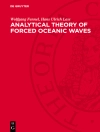This volume is of interest to practical engineers. It discusses some contemporary issues related to soil mechanics in earthwork projects which are critical components in civil construction and often require detailed management techniques and unique solution methods to address failures. Being earth bound, earthwork is influenced by geomaterial properties at the onset of a project. Hence, an understanding of the in-situ soil properties is essential. Slope stability is a common problem facing earthwork construction, such as excavations and shored structures. Analytical methods for slope stability remain critical for researchers due to the mechanical complexity of the system. Striving for better earthwork project managements, the geotechnical engineering community continues to find improved testing techniques for determining sensitive properties of soil and rock, including stress-wave based, non-destructive testing methods. To minimize failure during earthwork construction, past case studies and data may reveal useful lessons and information to improve project management and minimize economic losses. This volume discusses these aspects using appropriate methods in a simple way. The volume is based on the best contributions to the 2nd Geo MEast International Congress and Exhibition on Sustainable Civil Infrastructures, Egypt 2018 – The official international congress of the Soil-Structure Interaction Group in Egypt (SSIGE).
विषयसूची
Comparison of prediction models for the permeability of granular materials using a database.- Virtual reality and neural networks for exploting geotechnical data.- Validation of compression index approximations using soil liquid limit.- Validation of compression index approximations using soil void ratio.- Innovative model for settlement calculations in organic soils.- Resilient modulus prediction of subgrade soil using dynamic cone penetrometer.- Phosphogypsum management challenges in Tunisia.- Variation of some hydrogeochemistry with cbr of residual soils from north-central nigeria: impact of underlying lithology.- G shear box test to determine shear characteristics of coarse grained soils at low normal stresses.- Use of the method of concrete lozenges to strengthening the slopes stability: assessment of the safety factor by the finite element method.- Modelling landslides by the finite element method: application to an embankment on a railway in the moroccan rif.- Features of investigation of soil according to kazakhstan norm and international standards.- Marsh funnel test as an alternative for determining the liquid limit of soils.- Contribution to the study of geotechnical characterization and behaviour of tunis soft clay.- Drained response of granular material.- Cut slope stability analysis of rangvamual landslide along aizawl airport road, northeast india.- Geo-mechanical characterization in laterite soil mixtures – aerial lime for road based use in federal district, brazil.- Effects of sand sizes on engineering properties of tropical sand matrix soils.
लेखक के बारे में
Dr Sayed Hemeda is a Doctor of Civil Engineering Department, Aristotle University of Thessaloniki, Greece. He occupies the position of Associate Professor, Conservation Department, Faculty of Archaeology, and Cairo University, Egypt. Also he is the Vice Manager of Conservation Centre. He was awarded the Cairo University’s prize of scientific excellence in 2017. He was awarded the Cairo University’s prize of encourage in 2014. He was awarded the Cairo University’s prize for the best PH.D Theses in faculty of archaeology, 2009-2010. He published more than 48 international scientific articles in international scientific journals in Springer and Elsevier. He composed 12 scientific international books published in London, Croatia, Roma, and Berlin. He is Editorial Board Member of the Sustainable Civil Infrastructures, book series, published by Springer Nature. He is Editorial Board Member of the Progress of Electrical and Electronic Engineering in Singapore. He is Editorial Board Member of the Geoscience Journal in Singapore. He is Editorial Board Member of the Alexandria Engineering Journal.
Dr. Mounir Bouassida is a professor of civil engineering at the ‘Ecole Nationale d’Ingénieurs de Tunis’ of the ‘Université de Tunis El Manar’ where he earned his B.S., M.S., Ph.D., and doctorate of sciences diplomas, all in civil engineering. He is the director of the Research Laboratory in Geotechnical Engineering and has supervised 16 Ph.D. and 29 master of science graduates. His research focuses on soil improvement techniques and behavior of soft clays. Dr. Bouassida is the (co)author of 87 papers in refereed international journals; 126 papers, including 18 keynote lectures; and three books. He is a member of the editorial committees of journals Ground Improvement (ICE), Geotechnical Geological Engineering, Infrastructure Innovative Solutions, and International Journal of Geomechanics (ASCE). He is also an active reviewer in several international journals.As a 2006 Fulbright scholar, Bouassida created a novel methodology for the design of foundations on reinforced soil by columns. He was awarded the 2006 S. Prakash Prize for Excellence in the practice of geotechnical engineering. In 2008, Bouassida launched a Tunisian consulting office in geotechnical engineering, SIMPRO. He is a co-developer of the software Columns 1.01 used for designing column-reinforced foundations. Prof. Bouassida held the office of the vice president of ISSMGE for Africa (2005–2009). He benefited from several grants as a visiting professor in the USA, France, Belgium, Australia, Vietnam, Hong-Kong and Norway.












